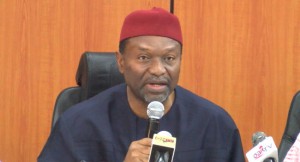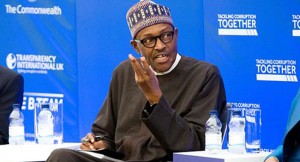Niyi Odebode, John Alechenu, Fisayo Falodi, Gbenro Adeoye and Eric Dumo
The Federal Government on Friday alerted
Nigerians to the outbreak of a killer disease known as Stevens-Johnson
Syndrome in the country.
The Minister of Health, Prof. Isaac
Adewole, who announced the outbreak of the disease at a news conference
in Abuja, said the disease had killed one person.
He added that another person affected by the disease was responding to treatment at the National Hospital, Abuja.
Urging Nigerians not to panic, Adewole said that the Federal Government was doing everything possible to check the outbreak.
The minister described the health
condition as an unusual allergic reaction to medications found in
Nigeria and some parts of Europe.
He said, “We have to find a means to
communicate with Nigerians, so they should all be aware of this
dangerous disease and it is the sole business of the government to
enlighten the society by trying to increase their awareness, knowledge
and to improve their quality way of life.”
The minister urged Nigerians to be vigilant and seek urgent medical attention should they notice any sign of a rare disease.
Adewole urged members of the public to be more careful while using medications of all kinds.
He announced that the call became
necessary considering the fact that a sibling of marathoner, Fedeshola
Adedayo, died of the ailment.
He called for increased awareness in the use of drugs and in the reading of drug leaflets.
The minister also called attention to
the need for thorough scrutiny of drug leaflets before taking such drugs
to guide against adverse effects.
He urged Nigerians to always involve
health practitioners when unexplained reactions occur as a result of
infections or in the use of drugs as the syndrome is unpredictable and
more prevalent in women.
At the press conference, a Senior
Consultant Physician/Dermatologist at the National Hospital, Abuja, Dr.
Olanrewaju Falodun, explained the symptoms of the disease and the cases
being treated in his hospital.
“SJS is an immune complex mediated
hypersensitivity reaction that typically involves the skin and mucous
membranes and was first described in 1922 by Albert Stevens and Frank
Johnson,” Falodun said.
“SJS is a rare and unpredictable
reaction, and is also a minor form of toxic epidermal necrolysis with
less than 10 per cent body surface area involvement.”
“SJS is a rare but serious and
potentially life-threatening contagious drug reaction. Incidence of SJS
is estimated between 1.1 and 7.1 cases per million per year and is more
prevalent in women than men. Incidence in Europe is two per million per
year.”
According to him, the incidence of the
disease is higher in Africa because of the extensive use of herbal drugs
and the prevalence of HIV.
Falodun explained that the symptoms of
the SJS disease include fever, sore throat, runny nose, fatigue, general
aches and pains, ulcers in mouth, genitals, anal regions as well as
conjunctivitis.
According to him the health
complications include pigmentation problems, skin scarring, scarred
genitals, joint pains, lung diseases, obstructive disorders and eye
complications, adhesions, ulcers, and blindness.
The medical doctor said the cause of the disease was unknown, adding that self-medications appeared to be one of its causes.
He urged Nigerians to avoid
self-medication, adding that individuals with previous drug reactions
should report to health care practitioners.
The management of the disease include
cessation of suspected drugs; hospital admission, preferably in burns
unit/intensive care; nutritional and fluid replacement; temperature
maintenance; pain relief and mouth care.
A pathologist, Dr. Idris Durojaiye, described SJS as “a very severe reaction to drugs.”
He said, “The whole skin will peel off
but it is usually linked to a drug that the person has taken, so if
there is an outbreak, it is because people are reacting to a particular
drug being circulated.
“It is usually doctors that can try to
identify the drugs that may be responsible because if there is an
outbreak, it means there is a pattern. So basically, it is the duty of
the health authorities to trace the pattern to know if there is a
particular drug that is responsible for it.
“Normally, a patient cannot know if he
would react to a drug because you cannot know if you have never reacted
to the drug before. So my advice is that whatever drugs that people have
reacted to in the past, they should try and avoid it. But the problem
is that if you have never taken a drug before, you cannot know if you
will react to it.
“If the health authorities can find out
if the patients took something that is common to both of them; there has
to be a link somewhere if the patients are in the same location.”
Former Chairman and Secretary, Nigeria
Medical Association, Lagos State Chapter, Dr. Olusola Olowoselu,
described SJS as not completely new.
He said, “It is something we in the
medical profession encounter from time to time in the hospital. The
disease is mostly managed by dermatologists.
“We encounter it all the time especially
among patients using certain types of drugs like Septrin, Metirapin,
and a host of others. Some individuals are sensitive and so their bodies
react to medications in different ways.
“Beyond medications, infection can also
play a role in persons being afflicted with the ailment. It is something
we see and deal with all the time in the hospital.”
The Medical Director of OAR Hospital,
Ile-Epo, Lagos, Dr. Abiodun Ojifinni, also said that SJS was not a new
disease in Nigeria and that it does not break out regularly.
Ojifinnin identified the symptoms of the disease as rashness all over the human body and fever, among others.
“The disease is contagious and once it kills one or two people, it disappears to break out some years later,” he said.
The symptoms of the disease include
facial swelling, tongue swelling, hives, skin pain, blisters on the skin
and shedding of the skin, according to Mayo Clinic.
It described the disease as a “rare and unpredictable reaction”, which is usually “triggered by a medication or an infection.”
Drugs identified as possible causes of
SJS include anti-gout medications, such as allopurinol; pain relievers
such as acetaminophen (Tylenol, others), ibuprofen (Advil, Motrin IB,
others); and naproxen sodium (Aleve).
Others include medications to fight
infection, such as penicillin, medications to treat seizures or mental
illness (anticonvulsants and antipsychotics) and radiation therapy
The clinic identified infections that
can cause the disease to include: “Herpes (herpes simplex or herpes
zoster); Pneumonia; HIV and Hepatitis.”
In the United States, about 300 new
diagnoses are made each year. The condition is more common in adults
than in children. Women are affected more often than men, with cases
occurring at a two to one ratio.
If 10 per cent of the body surface area is involved, the disease has a mortality rate of around five per cent







